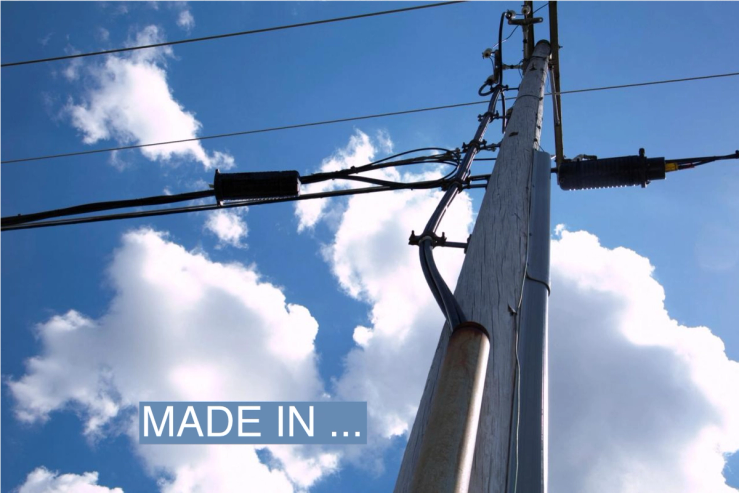The Scoop
The Biden administration is waiving certain “Buy America” requirements for its $40 billion effort to expand U.S. broadband access, according to documents shared with Semafor.
The move will allow the Commerce Department to fund projects that use materials manufactured abroad, with the goal of speeding up the broadband rollout. But even with its waiver in place, the administration still estimates that roughly 90% of funding for equipment will be used to purchase U.S.-made products.
The new waiver “takes the strongest approach possible to protecting American jobs while also ensuring that we can quickly build the Internet networks,” Will Arbuckle, a senior policy adviser at Commerce’s National Telecommunications and Information Administration, writes in a forthcoming blog post.
Step Back
Under its buy-American provision, projects funded through Biden’s 2021 bipartisan infrastructure law are required to use materials made in the U.S. The rules have often been criticized for adding to construction costs, and experts and industry groups warned that applying them too strictly could bog down the administration’s broadband ambitions, since many of the key components used in networks are not widely manufactured stateside.
Blair Levin, a nonresident senior fellow at the Brookings Institution who raised those concerns last year, told Semafor that the new waiver was appropriate, and described it as “pretty narrow” overall.
According to the final waiver notice shared first with Semafor, the Commerce Department is waiving “Buy America” requirements for the overclad cylinders used to make optical fiber and for most electronics used in projects funded through the broadband program. For the four categories of electronics that aren’t covered by the waiver, the Biden administration is waiving the requirement that at least 55% of their components must be American-made and setting other rules to determine they are U.S.-made.
In its notice, the administration points to the dearth of U.S.-made semiconductors as a key reason the waiver is necessary. The Biden administration is currently trying to boost domestic manufacturing of chips with the multibillion dollar CHIPS and Science Act, but the impact of the law’s investments are years off. Taiwan currently dominates the semiconductor industry, producing an estimated 90% of the world’s most advanced chips.
At the same time, the administration rejected requests from industry for more expansive waivers, like one that would provide a blanket waiver for fiber not made in the U.S. The final waiver will be published Friday morning.
Levin agreed with the administration’s assessment that most of the money would be spent in the U.S. “The two main components are labor and fiber, and that’s going to be American,” he told Semafor.
Levin also said he was surprised by how much success Commerce has had in encouraging companies like Nokia to invest in the U.S. The Biden administration has touted new manufacturing jobs in states like Wisconsin resulting from Nokia’s decision to move production to the U.S. to comply with the forthcoming “Buy American” rules.
“They’ve been very successful in getting folks to build here,” he said.


